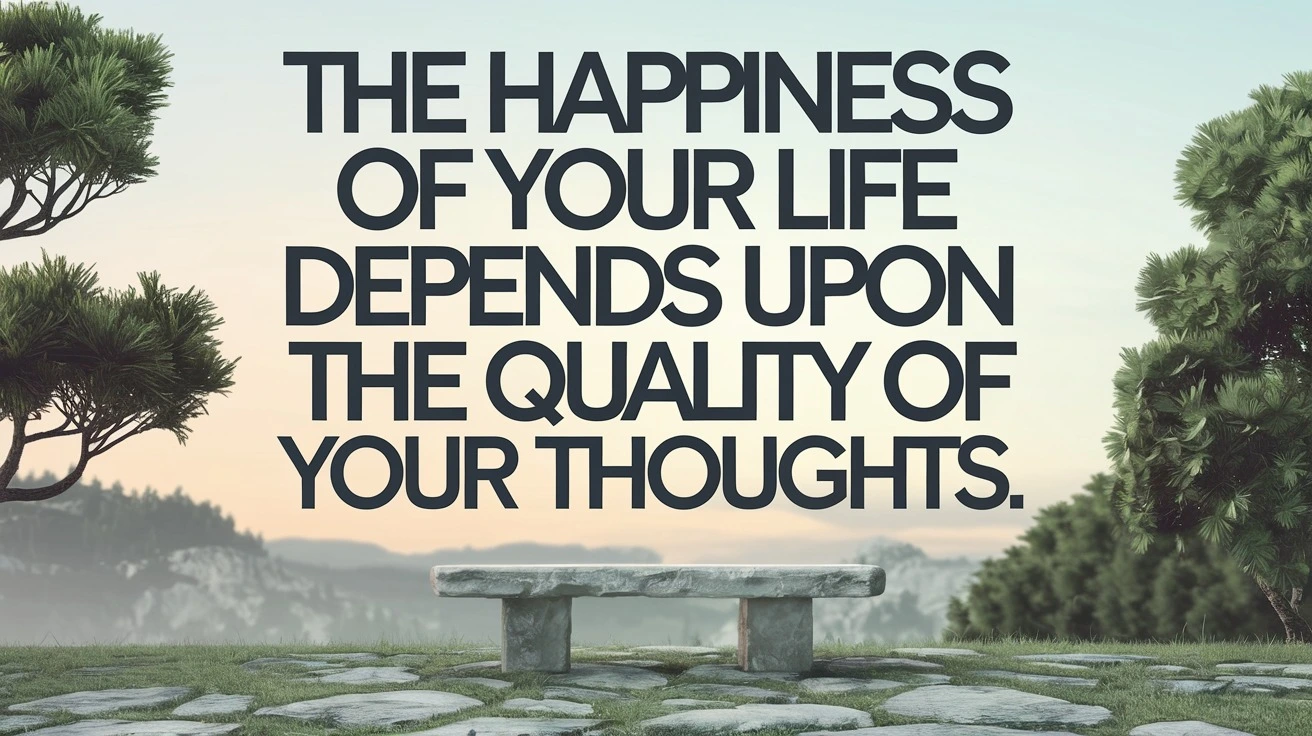This collection of Stoicism Quotes reflects the essence of Stoic philosophy, offering insights into living a balanced and virtuous life.
Stoicism, a philosophical school founded in ancient Greece, emphasizes resilience, self-control, and rational thinking.
Its principles focus on understanding what we can control and accepting what we cannot. Stoics offer profound wisdom on handling lives.
On Resilience and Endurance
“He who is brave is free.”
Author: Seneca
Description:
Suggests that true freedom comes from bravery and enduring life’s challenges.
“It does not matter what you bear, but how you bear it.”
Author: Seneca
Description:
Emphasizes that the way we handle adversity is more important than the adversity itself.
“The greater the difficulty, the more glory in surmounting it. Skillful pilots gain their reputation from storms and tempests.”
Author: Epictetus
Description:
Compares overcoming difficulties to becoming a skilled pilot, where challenges prove our capabilities.
“Difficulties strengthen the mind, as labor does the body.”
Author: Seneca
Description:
Highlights how facing difficulties builds mental strength, similar to how exercise strengthens the body.
“Man is affected not by events, but by the view he takes of them.”
Author: Epictetus
Description:
Suggests that our perception of events, rather than the events themselves, determines our emotional responses.
“The only way to deal with an unfree world is to become so absolutely free that your very existence is an act of rebellion.”
Author: Albert Camus
Description:
Emphasizes personal freedom as a form of resistance against an oppressive world.
“He who is brave is free from fear.”
Author: Seneca
Description:
Reflects on the freedom from fear that comes with true bravery.
“The things that we love tell us what we are.”
Author: Seneca
Description:
Suggests that our passions and affections reveal our true character.
“The obstacle on the path becomes the path. Never forget, within every obstacle is an opportunity to improve our condition.”
Author: Ryan Holiday
Description:
Highlights that obstacles provide opportunities for growth and improvement.
“You have power over your mind – not outside events. Realize this, and you will find strength.”
Author: Marcus Aurelius
Description:
Emphasizes the power of controlling one’s mind and perspective to find inner strength.
On Control and Acceptance
“We cannot control the events in our lives, but we can control our responses to those events.”
Author: Epictetus
Description:
Highlights the importance of focusing on our reactions rather than external events.
“The happiness of your life depends upon the quality of your thoughts.”
Author: Marcus Aurelius
Description:
Suggests that a positive and virtuous mindset leads to a happy life.
“Do not waste time on what you cannot control or change.”
Author: Epictetus
Description:
Advises focusing energy on things we can influence and letting go of what we cannot.
“Accept the things to which fate binds you, and love the people with whom fate brings you together, but do so with all your heart.”
Author: Marcus Aurelius
Description:
Encourages acceptance of fate and wholehearted love for those around us.
“What is the essence of life? To be in the present moment and to make the best of it.”
Author: Epictetus
Description:
Emphasizes living fully in the present moment as the essence of life.
“You are not your thoughts; you are what you do.”
Author: Marcus Aurelius
Description:
Suggests that our actions define us more than our thoughts.
“The only way to deal with fear is to face it head-on and accept it.”
Author: Seneca
Description:
Advocates confronting and accepting fear as a way to overcome it.
“No man is free who is not master of himself.”
Author: Epictetus
Description:
Defines true freedom as mastery over one’s.
“To live a good life: We have the potential for it if we learn to be indifferent to what makes no difference.”
Author: Marcus Aurelius
Description:
Highlights the importance of focusing on what truly matters and ignoring trivial concerns.
“The best revenge is to be unlike him who performed the injury.”
Author: Marcus Aurelius
Description:
Suggests that the best response to wrongs is to maintain one’s virtuous behavior.
On Virtue and Wisdom
“Wisdom is the only good, ignorance is the only evil.”
Author: Socrates
Description:
Defines wisdom as the ultimate good and ignorance as the primary evil.
“Virtue is the only good that can be possessed by the soul.”
Author: Epictetus
Description:
Emphasizes that virtue is the sole true good for the soul.
“It is not things themselves that disturb us, but our interpretations of them.”
Author: Epictetus
Description:
Highlights that our reactions to events are shaped by our interpretations rather than the events themselves.
“A good character is the only real wealth that we can bring with us into the next world.”
Author: Seneca
Description:
Suggests that a virtuous character is the most valuable asset we have.
“He who is not a good man cannot be a wise man.”
Author: Seneca
Description:
Argues that wisdom is intrinsically linked to goodness and virtue.
“The greatest wealth is to live content with little.”
Author: Plato
Description:
Emphasizes contentment with simplicity as the greatest form of wealth.
“To be content with what we have is the greatest form of wealth.”
Author: Seneca
Description:
Highlights the value of contentment as a form of true wealth.
“Wisdom comes to us when we are open to learning from everything and everyone.”
Author: Epictetus
Description:
Defines wisdom as a result of being open to learning from all experiences.
“The wise man is indifferent to external circumstances, focusing solely on his virtue.”
Author: Epictetus
Description:
Suggests that true wisdom involves focusing on internal virtue rather than external conditions.
“A wise man will be indifferent to the things that he cannot control.”
Author: Marcus Aurelius
Description:
Advocates for indifference towards what is beyond our control as a mark of wisdom.
On Inner Peace and Happiness
“Happiness depends upon ourselves.”
Author: Aristotle
Description:
Suggests that happiness is a result of our actions and mindset.
“The mind that is anxious about future events is miserable.”
Author: Seneca
Description:
Warns that anxiety about the future leads to unhappiness and misery.
“Contentment is natural wealth; luxury, artificial poverty.”
Author: Socrates
Description:
Contrasts natural contentment with the artificial nature of luxury and its inability to bring true happiness.
“Peace is not the absence of conflict, but the ability to cope with it.”
Author: Sagheer
Description:
Defines peace as the ability to handle conflicts effectively rather than the absence of conflict.
“The more we value things outside our control, the less control we have.”
Author: Epictetus
Description:
Emphasizes that valuing external things diminishes our sense of control.
“True happiness is not achieved through self-gratification, but through fidelity to a worthy purpose.”
Author: Helen Keller
Description:
Suggests that genuine happiness comes from commitment to meaningful goals rather than self-indulgence.
“The key to happiness is to appreciate what you have while working for what you want.”
Author: Sagheer
Description:
Highlights the importance of appreciating current blessings while striving for future goals.
“Inner peace comes from accepting the present moment as it is.”
Author: Sagheer
Description:
Defines inner peace as accepting and embracing the present moment.
“Happiness is not found in external circumstances, but in our inner state of being.”
Author: Sagheer
Description:
Suggests that true happiness originates from within rather than from external sources.
“The secret to happiness is to find contentment in simplicity and peace in acceptance.”
Author: Sagheer
Description:
Advocates for finding joy in simplicity and acceptance as a path to happiness.
On Personal Growth and Self-improvement
“The only thing in our power is our thoughts.”
Author: Epictetus
Description:
Emphasizes that we have control only over our thoughts and attitudes.
“We are more concerned about our reputation with others than our character with ourselves.”
Author: Marcus Aurelius
Description:
Highlights the importance of focusing on personal character rather than external reputation.
“To improve is to change; to be perfect is to change often.”
Author: Winston Churchill
Description:
Suggests that continuous improvement requires frequent change and adaptation.
“Self-discipline is the key to personal growth and success.”
Author: Sagheer
Description:
Defines self-discipline as essential for achieving personal development and success.
“The journey of a thousand miles begins with a single step.”
Author: Laozi
Description:
Emphasizes that significant achievements start with small, initial actions.
“What we achieve inwardly will change outer reality.”
Author: Plutarch
Description:
Suggests that personal growth and internal changes have the power to impact external circumstances.
“The only limit to our realization of tomorrow is our doubts of today.”
Author: Franklin D. Roosevelt
Description:
Highlights how doubt can hinder our potential for future achievements.
“To know thyself is the beginning of wisdom.”
Author: Socrates
Description:
Defines self-knowledge as the foundation of wisdom.
“Change is not a threat, but an opportunity for growth.”
Author: Sagheer
Description:
Encourages viewing change as a chance for personal development rather than a threat.
“Your task is not to foresee the future, but to enable it.”
Author: Antoine de Saint-Exupéry
Description:
Focuses on the importance of taking proactive steps to shape the future rather than trying to predict it.
On Wisdom and Knowledge
“It is not that we are given a short life, but that we waste a lot of it.”
Author: Seneca
Description:
Highlights that a short life is less about its duration and more about how we use our time.
“Knowledge is the most powerful weapon which you can use to change the world.”
Author: Nelson Mandela
Description:
Suggests that knowledge has the transformative power to create change.
“He who has a why to live can bear almost any how.”
Author: Friedrich Nietzsche
Description:
Emphasizes that having a purpose can help us endure almost any difficulty.
“The only true wisdom is in knowing you know nothing.”
Author: Socrates
Description:
Reflects on the humility and openness that come from acknowledging our ignorance.
“To know what you know and what you do not know, that is true knowledge.”
Author: Confucius
Description:
Defines true knowledge as understanding both our knowledge and ignorance.
“The greatest wealth is to live content with little.”
Author: Plato
Description:
Highlights that true wealth lies in contentment with simplicity.
“Wisdom is the daughter of experience.”
Author: Leonardo da Vinci
Description:
Suggests that wisdom comes from learning through experiences.
“The wise man is indifferent to the things he cannot control.”
Author: Epictetus
Description:
Emphasizes that wisdom involves being indifferent to uncontrollable external factors.
“A man’s worth is no greater than the worth of his ambitions.”
Author: Marcus Aurelius
Description:
Reflects on how the value of a person is related to their ambitions and goals.
“The unexamined life is not worth living.”
Author: Socrates
Description:
Argues that a life not subject to reflection and self-examination is lacking in value.
On Courage and Bravery
“Courage is not the absence of fear, but the triumph over it.”
Author: Nelson Mandela
Description:
Defines courage as overcoming fear rather than the absence of it.
“A brave man dies but once, a coward many times.”
Author: Julius Caesar
Description:
Suggests that bravery involves facing death only once, while cowardice results in repeated fears.
“He who is brave is free.”
Author: Seneca
Description:
Reflects on the link between bravery and freedom.
“Fortune favors the brave.”
Author: Virgil
Description:
Suggests that taking risks often leads to favorable outcomes.
“Bravery is the capacity to perform properly even when scared half to death.”
Author: Omar N. Bradley
Description:
Describes bravery as acting correctly even in the face of fear.
“The greatest glory in living lies not in never falling, but in rising every time we fall.”
Author: Nelson Mandela
Description:
Emphasizes that true glory comes from perseverance through failures.
“Courage is the power to let go of the familiar.”
Author: Raymond Lindquist
Description:
Defines courage as the ability to embrace the unfamiliar and let go of what is known.
“To be courageous is to confront the fear of the unknown with a determined spirit.”
Author: Sagheer
Description:
Reflects on courage as facing uncertainty with resolve.
“It is not the mountain we conquer, but ourselves.”
Author: Sir Edmund Hillary
Description:
Suggests that the true challenge of overcoming obstacles is about self-conquest.
“Courage is grace under pressure.”
Author: Ernest Hemingway
Description:
Describes courage as maintaining composure and dignity under stressful conditions.
On Leadership and Influence
“The function of leadership is to produce more leaders, not more followers.”
Author: Ralph Nader
Description:
Emphasizes that effective leadership involves creating new leaders rather than accumulating followers.
“Leadership is the capacity to translate vision into reality.”
Author: Warren Bennis
Description:
Defines leadership as the ability to turn vision into tangible outcomes.
“A leader knows the way, goes the way, and shows the way.”
Author: John C. Maxwell
Description:
Highlights that leadership involves knowledge, action, and guidance.
“The greatest leader is not necessarily the one who does the greatest things. He is the one that gets the best out of the people.”
Author: Ronald Reagan
Description:
Suggests that the most effective leaders bring out the best in others.
“A leader is a dealer in hope.”
Author: Napoleon Bonaparte
Description:
Defines leadership as providing hope and inspiration to others.
“The art of leadership is saying no, not yes. It is very easy to say yes.”
Author: Tony Blair
Description:
Highlights that true leadership involves making tough decisions and setting boundaries.
“The function of leadership is to create more leaders, not more followers.”
Author: Ralph Nader
Description:
Emphasizes that the goal of leadership should be to develop more leaders.
“Leadership and learning are indispensable to each other.”
Author: John F. Kennedy
Description:
Suggests that effective leadership requires ongoing learning and growth.
“Leadership is not about being in charge. It is about taking care of those in your charge.”
Author: Simon Sinek
Description:
Defines leadership as focusing on the well-being and development of team members.
“The true test of leadership is how well you function in a crisis.”
Author: Brian Tracy
Description:
Emphasizes that leadership effectiveness is demonstrated during challenging times.
On Self-Control and Discipline
“Self-control is the key to happiness and success.”
Author: Sagheer
Description:
Highlights the importance of self-discipline in achieving happiness and success.
“Discipline is the bridge between goals and accomplishment.”
Author: Jim Rohn
Description:
Defines discipline as the crucial link between setting goals and achieving them.
“The greatest victory is over oneself.”
Author: Plato
Description:
Suggests that the most significant triumph is mastering one’s desires and impulses.
“The only way to deal with temptation is to yield to it.”
Author: Oscar Wilde
Description:
Highlights the paradoxical approach of surrendering to temptation as a means of managing it.
“Control your mind or someone else will control it for you.”
Author: Sagheer
Description:
Emphasizes the necessity of self-control to maintain personal autonomy.
“To control yourself is to be powerful; to control others is to be weak.”
Author: Laozi
Description:
Suggests that true strength lies in self-mastery rather than controlling others.
“Discipline is choosing between what you want now and what you want most.”
Author: Abraham Lincoln
Description:
Defines discipline as making choices between immediate desires and long-term goals.
“The best way to predict your future is to create it.”
Author: Peter Drucker
Description:
Encourages proactive self-discipline to shape one’s future.
“Self-control is the chief element of self-respect.”
Author: Sagheer
Description:
Reflects on how self-discipline contributes to self-respect.
“Mastering others is strength. Mastering yourself is true power.”
Author: Laozi
Description:
Differentiates between controlling others and mastering oneself, valuing the latter as true power.
On Perspective and Mindset
“Our life is what our thoughts make it.”
Author: Marcus Aurelius
Description:
Highlights that our thoughts shape our experience of life.
“The mind is everything. What you think you become.”
Author: Buddha
Description:
Emphasizes the transformative power of our thoughts.
“Change your thoughts and you change your world.”
Author: Norman Vincent Peale
Description:
Suggests that altering our mindset can significantly impact our life experiences.
“The only limit to our realization of tomorrow is our doubts of today.”
Author: Franklin D. Roosevelt
Description:
Highlights how self-doubt can hinder future possibilities.
“Everything has its beauty, but not everyone can see it.”
Author: Confucius
Description:
Reflects on the subjective nature of beauty and the importance of perspective.
“Your perspective on life comes from the cage you were held captive in.”
Author: Shannon L. Alder
Description:
Suggests that our outlook on life is influenced by our past experiences and constraints.
“We see the world not as it is, but as we are.”
Author: Anaïs Nin
Description:
Highlights that our perception of the world is colored by our own experiences and beliefs.
“Happiness depends upon ourselves.”
Author: Aristotle
Description:
Emphasizes that personal happiness is within our control and dependent on our mindset.
“What we think, we become.”
Author: Buddha
Description:
Suggests that our thoughts shape our identity and reality.
“A pessimist sees the difficulty in every opportunity; an optimist sees the opportunity in every difficulty.”
Author: Winston Churchill
Description:
Contrasts the perspectives of pessimism and optimism in facing challenges.










